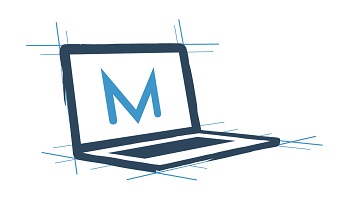The Remote Impostor: What have we lost?
Welcome back readers! I am revisiting my previous series on Impostor Syndrome and looking at how remote work has changed how we live with our insecurity. You can check out the original series here.

“I’m good enough, I’m smart enough, and dog gone it, people like me.” – Stuart Smalley Yes, I know Stuart Smalley wasn’t a licensed therapist, but he did have a mirror and a way of reflecting on himself (even if he was just a character in an SNL skit). While I have never been on SNL, only occasionally get called a character, and am certainly not a licensed therapist – I am an impostor.
For those of you who are new to my blog, you may have missed my previous series on impostor syndrome. If this is your first time here, or if you are just starting to explore and understand impostor syndrome, let me introduce myself. My name is Sean Bulger. I am an IT Pro that works with Microsoft Endpoint Manager. We have all taken different paths to get where we are in life – and my path can definitely be described as different. Stops on my career have included being a paramedic, working as a plumber, a brief period in sales, and a few different stints working in information technology. While this range of careers has provided me a well-rounded skillset, it also leaves me questioning how I got here. Oftentimes I worry about what other people think about me and whether I am qualified to be where I am in my career.
That is the crux of Impostor Syndrome. If we boil it down to its most basic elements, we find that living with impostor syndrome means that we spend a lot of time feeling insecure about things we shouldn’t feel insecure about. When I say that, “I am an impostor,” it is not saying that I am pretending to be something I’m not. Saying those words is an open admission that I frequently feel like I don’t deserve to be at the level I am in my career. Those feelings often lead to a fear of being exposed and a belief that other people can see through me.
In my earlier series, I explored the phenomenon of impostor syndrome in depth. In that five-part series I covered everything from who experiences it, to how we can deal with it, and what it means for our careers. Perhaps the most important thing that I found, both through my research and from talking with others, was that none of us are alone in feeling like we may not be good enough. Blogging and engaging with the community were important in helping me to address my own fears. My journey should serve as proof that sharing your story with others, engaging with a community of like-minded individuals, and finding an outlet for personal development can help to overcome feelings of inadequacy.
My goals at the start of 2020 were high. Running towards those goals meant that I did not have time to worry about what other people thought of me. The positive side effects were obvious. Feelings of inadequacy and self-doubt were replaced by confidence and determination. I failed to consider what would happen if the world changed in the blink of an eye. If we are being honest, most of us struggled through the first weeks of the pandemic. There will be countless biopics exploring the effects of 2020 on society, but I want to explore one simple question: What does a remote world mean for those of us who feel like impostors? Offices closed. Conferences were cancelled. User groups shut down or were moved online. Businesses had to shift their plans. Goals were put on hold. Life was no longer the same. It did not matter just how invested we felt in our own careers and personal growth – the world had changed, and we weren’t sure what that meant for us.
So what did we lose?
The first thing I would like to consider is this: What did we actually lose? Many of us thought that remote work would be an excellent time for personal and professional growth. Most of our businesses had already laid the groundwork that eased the transition to remote work. Working with Microsoft Endpoint Manager meant that we had the tools at our fingertips to provide value and empower our businesses. This was our moment to shine. How could this moment be anything other than a prime opportunity for IT professionals?
There are several intangible items that we lost. It seems a bit too simple to say that one thing we lost was a physical presence. You may be thinking, “Of course we lost a physical presence – that’s what remote work is!” I, like many people, have found that I prefer to work remote, so how can losing a physical presence contribute to something like impostor syndrome?
The benefits of working remote range from having fewer distractions to saving countless hours of commute time. However, despite the benefits of working remote, we lost the intangible benefits of having a physical presence. Those intangible items are some of the greatest tools that we have in the fight against impostor syndrome. Real-time feedback and positive reinforcement help us to understand how other people see us. Understanding the value we provide is the key to overcoming so much of our self-doubt. The classic “water cooler conversation” is one of the most undervalued benefits of working in an office. Some of the best discussions I have had in the office came while waiting for a cup of coffee. There are not a lot of chances for us to interact with people at all levels of our companies from across the organization. Organic conversations can range from mundane topics like the weather, but it also gives us the chance to talk about the work we are doing. There is no better chance for you to understand the value you are adding to an organization than by talking with people outside of your normal circle. Nothing is more validating as an IT pro than to hear how end users have benefited from the tools you have provided them.
Outside of these organic conversations, we also lost a lot of other opportunities to give and receive feedback. The most important feedback we receive often comes as a part of unrelated conversations. It is rare that someone seeks out a coworker just to give them positive feedback. In a remote world most of our conversations are out of necessity, and that means we lose a lot of the opportunities we had to interact in a less structured way.
Many of us have been trying to find the right balance of meetings and focus time to help return to some sense of normalcy. Some people try to make up for a lack of physical presence by scheduling more meetings. Unfortunately, we cannot make up for every aspect of physical presence by simply adding more meetings to our calendar. In the era of remote work, it is so much more difficult to gauge the engagement of team members in a meeting. So much of the validation we receive is through non-verbal cues. When a coworker is leaning in, making eye contact, and actively engaging with us, we know that we are providing them value. When we lose key interactions, we also lose countless signals that help us understand much value we are providing. It’s nearly impossible to regain that level of interaction when working remote. As impostors, that often leaves us guessing on how much impact we have.
As much as we lost a physical presence, we also lost another intangible asset: separation. When I worked as a paramedic the most important skill for maintaining your mental health was being able to separate the stress and trauma of the job from your personal life. Carrying the weight of our jobs home was dangerous to our emotional well-being. It wasn’t always easy, but it was a skill that became vitally important. Moving back into a traditional office job made separating work from home much easier. Commuting creates a separation of time. Drive time created an opportunity to work through problems from work, destress, and get into the right mindset for my personal life. Working in an office also creates a separation of space – work happens at work, and personal life happens at home. That separation is what allowed me to be able to really focus on my professional development outside of work. Studying for certifications, blogging, and engaging with the community online can feel a lot like work. Those tasks are very similar to what I do at work but having a separation of both time and space meant that it felt more personal. It was something I did for me, and that made it far more enjoyable.
Losing that separation meant that those things I was doing for personal enrichment began to feel like a job. I have always believed that we should not let our careers define us. Transitioning to remote work began to muddy the waters between work and home. The things that I was doing for personal enrichment no longer gave me the same level of enjoyment. Over time that lack of engagement led me back to a place where I began to wonder about my own growth. There was a sense of being trapped. It was harder to see the value I was providing at work – and impostor syndrome began to creep back in.
Instantly transitioning to remote work felt like trying to learn how to color for the first time. I knew that I was supposed to color within the lines, and that if I could do that that I would be able to create a beautiful picture. When those lines became less defined, the picture became a little bit messier. Working from home changed the way we work and interact. It is an opportunity, but we need to understand how to avoid some of the pitfalls that come from being remote. In my next blog post I will talk about the strategies that I have used to re-engage in my own person development and how that has helped me to combat my impostor syndrome.
Whether we are looking into a mirror or not it doesn’t hurt to remind ourselves that we are good enough, we are smart enough, and doggone it, people like us.

